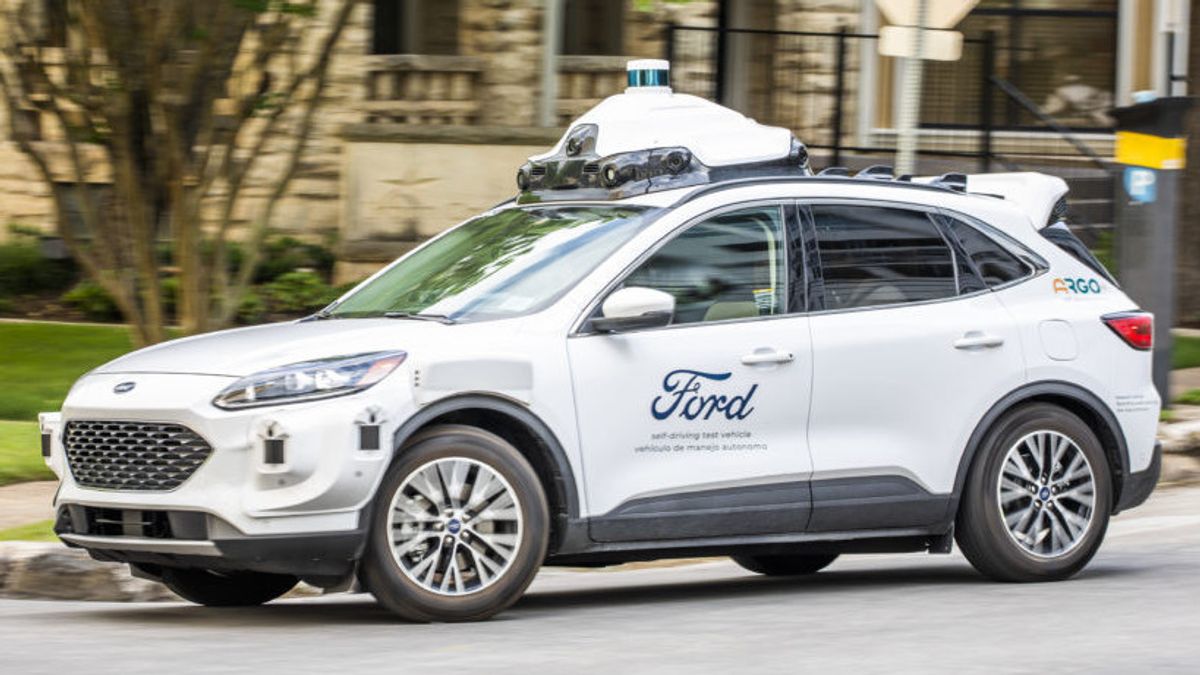JAKARTA - Self-driving startup Argo AI on Tuesday, May 17 announced that it has driverless vehicles that take employees around the streets of Miami, Florida and Austin, Texas. Furthermore, they will use commercial applications for the service in an undetermined time.
Argo, backed by Ford Motor Co and Volkswagen AG, has been testing its robotaxis on public roads in both cities for several years. However, previously they had included a safety driver behind the wheel.
"Argo is the first driverless taxi in two of America's largest cities, operating safely among heavy traffic, pedestrians, and cyclists in the busiest of environments," said Argo AI Chief Executive Bryan Salesky in a statement. .
Big news alert: We're driverless in Miami & Austin!From day one, we set out to tackle the hardest miles to drive & this milestone demonstrates our ability to scale an autonomy business in multiple cities where demand is highest. More: https://t.co/LtayIpEIch pic.twitter.com/ihw6bmPLJv
— Argo AI (@argoai) May 17, 2022
The company is enabling ride-hailing, delivery and logistics companies to integrate driverless vehicles into their operations.
A spokesperson for Argo AI said ride-hailing service Lyft Inc and grocery store chain Walmart Inc are also running pilot programs that integrate the technology.
"Our driverless operation was initially focused on making employee trips using an internally developed vehicle-calling test app," the spokesperson said. "We will integrate the driverless system into commercial operations at the appropriate time."
Lyft, which a year ago sold its own self-driving tech unit, partnered in July with Argo AI and Ford. The ride-hailing company said it will focus on how to "make maximum revenue" from robotaxis by providing routing, customer interface and fleet management services.
Walmart in September said it was partnering with Argo AI and Ford to launch its autonomous vehicle delivery service in Miami, Austin and Washington, D.C.
Self-driving companies have repeatedly pushed the dead line of providing truly driverless travel on a large scale, with only a few limited autonomous programs available across the US.
While human drivers are estimated to account for 80% of the cost per mile in traditional ride-hailing services, self-driving companies also need to recoup billions of dollars in development costs, and find ways to economically scale, manage and maintain vehicle fleets.
The English, Chinese, Japanese, Arabic, and French versions are automatically generated by the AI. So there may still be inaccuracies in translating, please always see Indonesian as our main language. (system supported by DigitalSiber.id)













